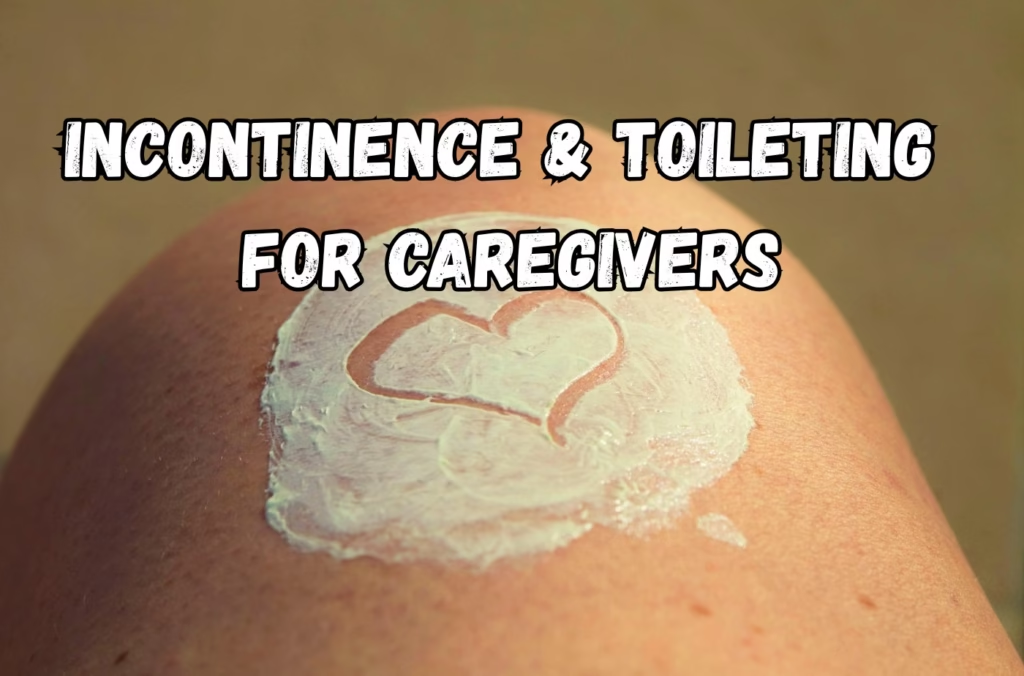Identifying as a caregiver often goes unnoticed in the tapestry of family dynamics. Yet, embracing this role is crucial in supporting and understanding those who depend on us. How can one acknowledge and define their caregiving responsibilities, and what does the journey of a caregiver truly entail?
1. Recognizing the Transition into a Caregiving Role
The Subtle Onset of Caregiving Responsibilities
Many individuals slide into the role of a caregiver without a clear starting point. What often begins as occasional assistance with simple tasks can gradually become more frequent and necessary. For example, you might start by helping a loved one with grocery shopping or driving to doctor’s appointments. Over time, these tasks can become more routine, and before you know it, you’re managing their medication or helping with personal care.
Signs That You Are More Than Just a Helping Hand
Family members must acknowledge the shift from casual support to more substantive caregiving. One sign of this transition is when your involvement becomes an integral part of your loved one’s daily life. Perhaps you’re making important decisions regarding their health care, or you find that much of your time is dedicated to their well-being. These are indications that your role has evolved.
Another key indicator is experiencing an emotional involvement that goes beyond casual concern. You may frequently worry about their health or safety when they are not with you. Financial management may also fall under your responsibilities, adding another layer to your involvement. Recognizing these signs is essential in identifying as a caregiver.
Moreover, your personal and professional life may also be affected. You may notice that you’re adjusting your work schedule to accommodate caregiving duties or previous social activities so that you’re available for your loved one. This integrated responsibility into your everyday routine strongly indicates your caregiving status.
It is essential to recognize and define these changes in your role for the well-being of both you and your loved one. As you grow into the caregiver role, it may be helpful to seek resources and support to ensure you’re providing the best care possible while also taking care of yourself.
2. Identifying as a Caregiver: The Moment of Realization
Emotional and Psychological Markers
Taking on the role of a caregiver often comes with significant emotional and psychological changes. These changes can be indicators of the transition into the caregiving role. Individuals may experience a sense of increased responsibility, overwhelming concern, and a need to prioritize someone else’s well-being, often a family member or close friend. It’s not uncommon for this shift to be accompanied by stress, anxiety, or even elements of guilt regarding one’s ability to provide adequate care. Recognizing these signs is instrumental in acknowledging one’s identity as a caregiver.
Additionally, the emotional bonds with the person being cared for often become redefined and strengthened. The caregiver may become more empathetic and patient, yet they might also feel lost as their loved one becomes more dependent. Such transformations can provide the psychological confirmation needed for the caregiver to recognize the importance and permanence of their role.
The Impact of Self-Identification on Personal Identity
When an individual begins identifying as a caregiver, their identity is profoundly impacted. This role becomes integral to their sense of self, and their perception of purpose may evolve as a result. They may start to see themselves through a new lens, as someone who provides critical support and possesses the unique strengths necessary for such a challenging role.
This new identification can lead to positive self-reflection and an enhanced understanding of personal resilience. However, for some, it may also result in identity conflict as they struggle to balance the demands of caregiving with other aspects of their personal life, such as career and social relationships. Accepting and adapting to this new aspect of one’s identity can be a profoundly transformative experience, deeply shaping various aspects of the caregiver’s life.
Ultimately, becoming aware of one’s role as a caregiver and embracing the associated responsibilities can lead to a stronger sense of identity and purpose. Caregivers need to recognize the importance of their work, which impacts not only their own lives but also the lives of those they care for and the broader community.
3. Defining the Scope of Your Caregiving Role
Understanding the Spectrum of Caregiving Responsibilities
Caregivers often navigate a wide range of duties that can evolve over time. Recognizing the full array of tasks that may fall under your care is essential. This includes personal care activities, such as bathing and dressing, as well as medical tasks like managing medications, and emotional support to promote mental well-being. Additionally, caregivers might be involved in logistical coordination for healthcare appointments and financial management.
Every caregiving situation is unique, and it’s essential to understand the specific requirements of the person you’re supporting. For instance, someone with a chronic disease may need a different type of care than an older adult with mobility issues. By mapping out the responsibilities, caregivers can better prepare and adjust their roles as required.
Setting Boundaries to Prevent Burnout
Setting clear boundaries is crucial to maintaining a sustainable caregiving role. These boundaries help outline what you are willing and able to do, thereby preventing burnout. For example, you might limit the number of hours you can provide care each day or designate specific tasks you are comfortable handling.
Saying ‘no’ or delegating specific responsibilities to others when necessary can be an act of self-care. Doing so creates a healthier balance between your caregiving duties and personal needs. Moreover, accessing support through community resources and caregiver support groups can provide crucial help and respite care opportunities.
Identifying as a caregiver is an essential step in understanding and defining your role. Acknowledging this identity can empower you to seek out the necessary resources and support to provide the best care while also taking care of yourself.
Remember, prioritizing your well-being is not selfish; it is an essential part of being a capable and compassionate caregiver. By familiarizing yourself with the spectrum of caregiving responsibilities and setting clear boundaries, you are laying the foundation for a healthier caregiving experience.
4. The Emotional Journey of Identifying as a Caregiver
The journey of identifying as a caregiver is often accompanied by a complex mix of emotions, which can include confronting guilt and navigating a path toward acceptance. Confronting guilt may arise from feelings that one is not doing enough or could handle the caregiving responsibilities better. It’s familiar to battle inner criticisms or compare oneself to others, leading to an emotionally draining cycle. However, it’s essential to remember that not feeling well is a natural response and part of the emotional landscape for many caregivers.
Acceptance is a crucial step in the caregiver’s journey. It involves recognizing and embracing the role of the caregiver with its responsibilities and challenges. Acceptance does not mean resignation; instead, it’s about acknowledging the reality of the situation and understanding that caregiving is a significant life transition. It is when caregivers accept their role that they can begin to seek out the information and support needed to navigate their responsibilities effectively and with less personal turmoil.
Navigating the Complexities of Caregiver Emotions
Understanding the emotional ride of caregiving is essential. Caregivers often experience a wide range of emotions, from love and compassion to frustration and resentment, often throughout the day. Navigating these emotions is normal and a testament to the caregiver’s commitment and the depth of their relationship with the care recipient.
It’s beneficial for caregivers to find outlets for their emotions, such as talking with friends, joining a support group, or engaging in self-care activities. Acknowledging the hard work and the emotional toll that caregiving can take is a step towards managing the stress and finding balance.
In identifying as a caregiver, it is vital to remember that these emotional experiences are a shared aspect of the caregiving role. By acknowledging the emotional journey and seeking support, caregivers can cultivate resilience and compassion for themselves and those they care for.
5. Legal and Financial Aspects of Being a Caregiver
Navigating Health Care Decisions and Power of Attorney
As an individual steps into the role of a caregiver, it’s crucial to understand the legal responsibilities associated with medical decision-making. One of the first steps is to obtain a Power of Attorney (POA) for healthcare, which legally authorizes you to make healthcare decisions on behalf of someone else when they are unable to do so themselves. This document is particularly essential for planning future healthcare needs and emergencies.
It’s important to discuss the wishes and preferences of the person you care for beforehand, ensuring that medical decisions align with their values and desires. Remember, as a caregiver managing healthcare, you must receive clear communication from healthcare professionals regarding the patient’s condition, treatment options, and prognosis. This information is necessary for informed decision-making and can reduce stress by providing clarity and direction.
Understanding Caregiver Rights and Resources
Identifying as a caregiver comes with responsibilities and the need to be aware of your rights. It’s essential to know that caregivers have specific protections under the law, such as the right to job security under the Family and Medical Leave Act (FMLA), which allows eligible employees to take unpaid leave for particular family and medical reasons with the continuation of group health insurance coverage.
Furthermore, caregivers should take advantage of the wealth of resources available to them. Support groups can offer emotional backing and practical advice, while financial assistance may be found through government programs like Medicaid or local non-profit organizations. These resources are designed to lighten the burden, ensuring that you, as a caregiver, maintain your health and well-being while providing care.
Additionally, various online platforms and community services offer educational material and caregiving courses to help enhance your skills and knowledge. By understanding and utilizing these rights and resources, you will be better equipped to navigate the complex responsibilities of caregiving—ultimately creating a more manageable and effective care journey for both you and your loved one.
6. The Importance of Self-Care for Caregivers
Finding Support Networks and Communities
For those who identify as caregivers, having a robust support network is invaluable. Engaging in communities of like-minded individuals can provide emotional solace and practical advice. These networks are essential in sharing the burden, whether through peer support groups, online forums, or local meet-ups. They become a platform where caregivers can exchange experiences, resources, and coping strategies, significantly alleviating the sense of isolation often accompanying caregiving roles.
Moreover, these communities can also offer access to resources such as respite care or financial assistance programs, which many caregivers may be unaware of. With the proper support, caregivers can navigate their responsibilities more effectively, ultimately ensuring better care for their loved ones.
Maintaining Personal Health and Well-Being
In the endeavor to care for others, it’s too easy to overlook one’s own needs. However, maintaining personal health and well-being is paramount for caregivers. A decline in a caregiver’s health can directly impact the quality of care they provide. It’s crucial to remember that self-care is not an act of selfishness; it’s a necessity.
Regular exercise, sufficient sleep, a balanced diet, and routine medical check-ups are the pillars of physical health that cannot be neglected. Mental and emotional well-being are equally important, necessitating activities that promote relaxation and stress relief, such as meditation, hobbies, or social outings. By preserving their health, caregivers ensure they are fit to face the challenges of their role, fulfilling their responsibilities without compromise.
Caregivers carry a significant weight, and their role must not overshadow their importance. Balancing caregiving with personal health and using supportive communities will allow them to sustain this delicate equilibrium. Remember, taking care of oneself is integral to taking care of others.
7. Communicating Your Role to Others
Discussing Your Responsibilities with Family and Friends
When you find yourself in the role of a caregiver, it’s essential to have open lines of communication with your family and friends. This begins with acknowledging your caregiving responsibilities and their impact on your everyday life. Doing so ensures that those around you understand the nature of your commitments and can offer the appropriate support.
Conversations with loved ones should involve a clear depiction of the day-to-day tasks you perform. This is not just about detailing your duties but also emphasizing the level of care you provide. Such discussions can foster empathy and may lead to practical assistance from your immediate social circle. It is essential to be honest about any difficulties you face, as family and friends can only help if they are made aware of the challenges you encounter.
Advocating for Your Needs in the Workplace
Identifying as a caregiver in a professional setting requires a delicate approach. You may need to discuss flexible working arrangements or time off with your employer. It is crucial to present your situation professionally, highlighting how workplace support can enhance your productivity and minimize stress.
To effectively advocate for yourself, come prepared with potential solutions that balance your caregiving obligations with your job responsibilities. This might include adjusting your schedule, working from home, or identifying periods when you are less available. Employers are increasingly recognizing the value of accommodating the caregiving needs of their employees, so don’t hesitate to express your needs.
By reinforcing the importance of mutual understanding between you, your family, friends, and the workplace, you lay the groundwork for a support system that recognizes and aids your crucial role as a caregiver.
8. Planning for the Future as a Caregiver
Adapting to Changes in Caregiving Dynamics
Caregiving is an ever-evolving journey that requires adaptability and resilience. As the needs of the care recipient change, caregivers must also modulate their approach and strategies to provide the best possible support. It’s essential to stay informed about the progression of your loved one’s condition so you can anticipate shifts in caregiving duties. This could mean learning new medical skills, seeking additional resources, or adjusting daily routines.
Embracing a flexible mindset can help with navigating these changes. Recognize that what worked in the past may no longer be effective, and be open to adopting new caregiving paradigms. This might involve incorporating technology to monitor health, involving other family members in care, or engaging professional home health aides.
Preparing for Role Reversal and Long-Term Caregiving
When you find yourself in a long-term caregiving situation, preparing for the emotional impact of role reversal is vital. This often occurs when parents become dependent on their adult children. It’s a significant transition that can affect your relationship dynamics, demanding sensitivity and patience from everyone involved.
Planning is crucial in mitigating the challenges associated with long-term caregiving. Consider establishing a support network, exploring financial planning options, and discussing end-of-life wishes with your care recipient. Preparing legal and healthcare documents in advance can also ensure that their wishes are honored and that you’re equipped to make decisions on their behalf, should the need arise.
Identifying as a caregiver is essential in this context, as it enables you to seek out and access resources and support specifically tailored to your caregiving needs. Acknowledge your critical role in your loved one’s life and give yourself credit for your dedication. It’s also essential to prioritize your well-being, as caregiving can be a demanding experience, both emotionally and physically.
Remember, looking into long-term care options is not a sign of defeat but rather a proactive step in ensuring the continued well-being of your loved one and yourself. Whether in-home care, assisted living, or other long-term care facilities, familiarizing yourself with these options will help you make informed decisions when the time comes.
In conclusion, adapting to the dynamics of caregiving and preparing for long-term care are crucial steps in the caregiving journey. As challenges arise, remaining adaptive and well-informed will help ensure that both you and your loved one navigate this path with grace and support.
Insightful Revelation: Many individuals step into caregiving roles without a formal acknowledgment, yet recognizing and defining this role serves as a cornerstone for better support and self-awareness. Identifying as a caregiver is a testament to the silent strength that millions display daily, often without fanfare or recognition.


